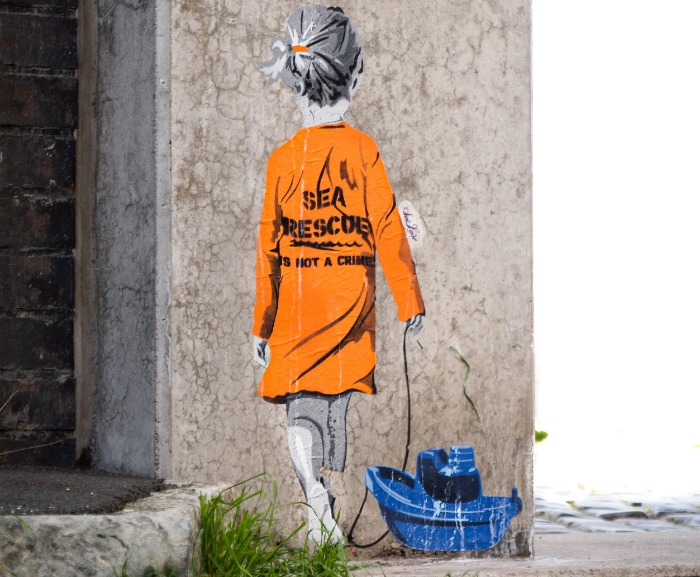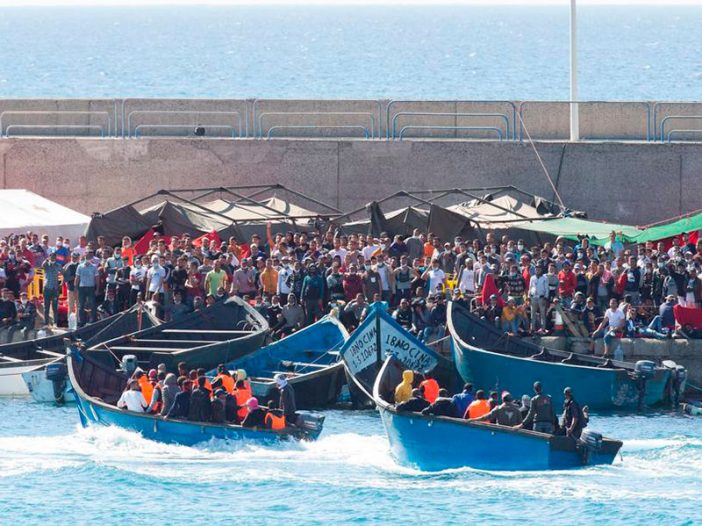
The migration crisis in the Canary Islands and the approval of the new education law (LOMLOE) were two of the main topics addressed by the Spanish bishops at the Plenary Assembly, held last November in a semi-presential manner.
In relation to the new education law, proposed by the Ministry headed by Isabel Celaá, the Spanish bishops are concerned about the limitations that the law imposes on "the right to education and freedom of teaching, as expressed in Article 27 of the Constitution and in its jurisprudential interpretation", especially in relation to "the exercise of the right to education and freedom of education, as expressed in Article 27 of the Constitution and in its jurisprudential interpretation", especially in relation to "the exercise of the right to education". parental responsibility in the education of children".
They also support the demonstrations "in defense of these rights, and particularly
of those referring to students with special needs".
The Spanish bishops have once again emphasized in this note that "the law should reflect the 'social demand' at all stages of the educational processThey also reiterated the importance of "the education of the moral and religious dimension of the person" which can never be qualified as indoctrination.

Article of the Spanish Episcopal Conference on immigration: The situation of immigrants in the Canary Islands
Also the crisis The migratory situation plaguing the Canary Islands has been the object of reflection of the Spanish bishops in the so-called "Autumn Plenary". So far this year, some 19,000 immigrants have arrived in small boats to the Canary coasts, giving rise to an unsustainable situation on the islands.
The bishops wanted to recall that, "For a Christian, the migrant is a child of God, a child of God, a child of God.
brother with a life marked by pain and suffering that seeks the hope of achieving a better life" and stressed that "We cannot remain oblivious to their pain nor indifferent when it comes to valuing the extraordinary contribution of those who come to our aging societies", without forgetting "the complexity of situations that converge in this drama".
For this reason, the prelates have returned to claiming shares in the countries of origin of these migrants with the aim of creating concrete possibilities to live with dignity in their homeland and simultaneously, "in the countries of destination, to save their lives" taking into account "the right balance between the protection of citizens' rights and the guarantee of reception and assistance to migrants. Christian communities," he continues, "must offer a unique witness of fraternity and citizenship in welcoming.
"We have to offer a testimony of fraternity and citizenship in the welcome, care and promotion of those who arrive and in the moral and political action against the causes of so much suffering."
In addition to these matters, the Plenary Assembly has approved the balance sheets
and budget liquidation for 2019, the distribution of the Interdiocesan Common Fund and the EEC budgets for the year 2021. Fernando Giménez Barriocanal has been renewed as Vice-Secretary for Economic Affairs of the Spanish Episcopal Conference for the next five years.
With the collaboration of:
SPANISH EPISCOPAL CONFERENCE